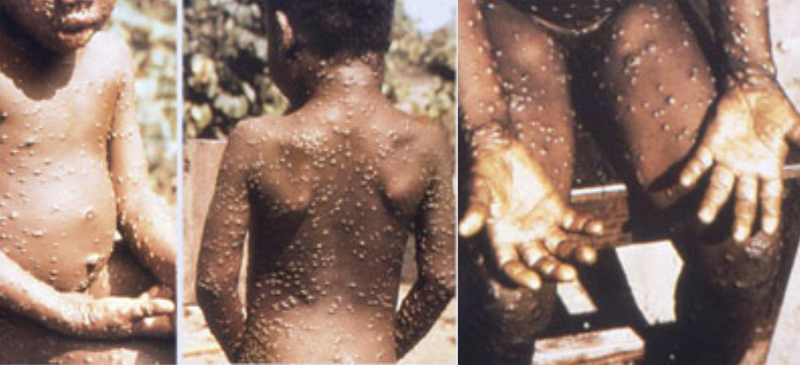According to European health officials, monkeypox sufferers' pet hamsters, gerbils, and guinea pigs should be "preferably segregated" in government laboratories.

In the worst-case scenario, if supervised isolation and regular testing are not possible, the agency suggests a cull as a "last resort" to permanently prevent the illness from taking root in the region.
Upon Discovery
Since the virus was initially found in England in early May, 90 instances have been detected across the UK, including 12 on Thursday, with 344 suspected or confirmed cases recorded in more than 20 countries globally.
The European Centre for Disease Control (ECDC) issued recommendations this week urging persons afflicted with monkeypox and their close connections to stay away from their pets, citing concerns that the virus might spread throughout Europe if it spreads to animals.
Prone to Disease
Pet rodents, such as hamsters, gerbils, guinea pigs, and mice, are the most vulnerable since they are prone to the disease.
"Ideally, rodent pets should be isolated in monitored facilities, complying with respiratory isolation (e.g., a laboratory) and animal welfare conditions (e.g., government facilities, kennels, or animal welfare organizations), and tested (by PCR) for exposure before quarantine ends," according to the ECDC.
Also Read : Scientists Double Effort to Find Possible Next Pandemic, Caused by Other Zoonotic Diseases
Euthanasia
Experts noted that euthanasia should only be used as a last option when testing and/or isolation are not possible.
When Covid-19 moved to mink in Denmark, millions were slaughtered to stop Sars-Cov-2 from spreading.
Other animals, such as dogs and cats, should be kept indoors as well. However, they can isolate at home because the danger of getting the virus is reduced.
Precautionary Measure
According to the Telegraph, the UK government will issue similar caution in the coming days, advising monkeypox victims to stay away from animals.
Monkeypox's natural reservoir is unknown, although specialists assume it is rodents in the west and central Africa, where the illness is widespread.
Two rope squirrels, a Gambian rat, and three dormice imported as pets from Ghana were linked to an epidemic in the United States in 2003.
The critters infected neighboring prairie dogs at a wholesale pet business, and the prairie dogs sickened 47 humans in six states, prompting America to ban all African rodent imports.
Although the risk of monkeypox spreading from humans to pets to animals is low, Prof David Robertson of the Glasgow Centre for Virus Research told the Telegraph that it is a "legitimate concern."
Challenging
If this happens, it will be challenging to track the virus's transmission, which might then migrate from wildlife to humans, causing recurring epidemics.
"Watch out for rabbits and mice, as they're likely to be kept as pets," Dr. Robertson added, citing a 1976 research that found they may get the virus.
"This virus has a wide host range, which is always concerning in terms of the ability to establish a new host species... it would seem prudent to monitor any animals/pets with which sick individuals come into contact," he noted.
Related Article : Scientists Finds the Link Between Climate Change and Proliferation of New Infectious Diseases
For more health and medicine related news, don't forget to follow Nature World News!
© 2025 NatureWorldNews.com All rights reserved. Do not reproduce without permission.





